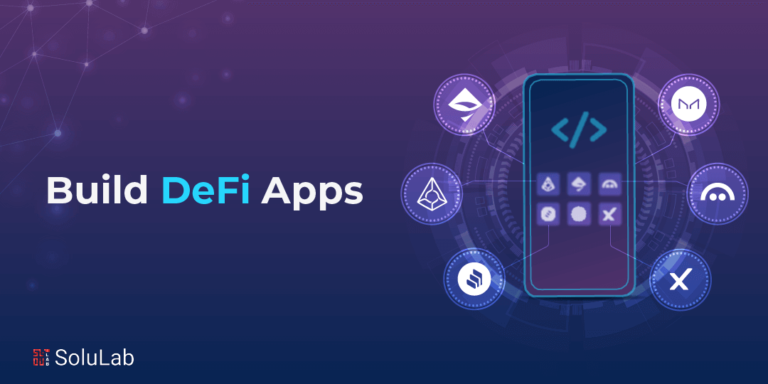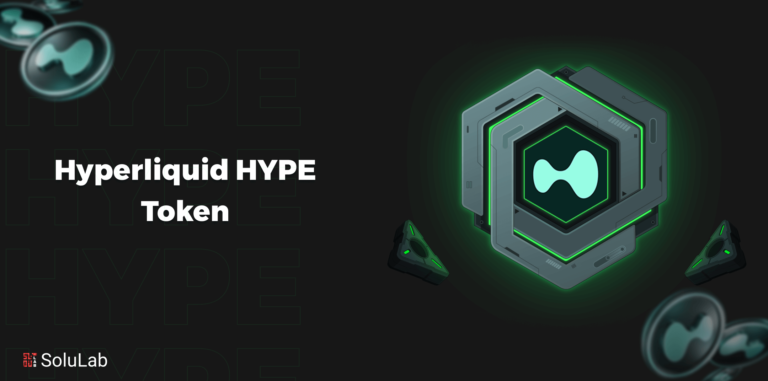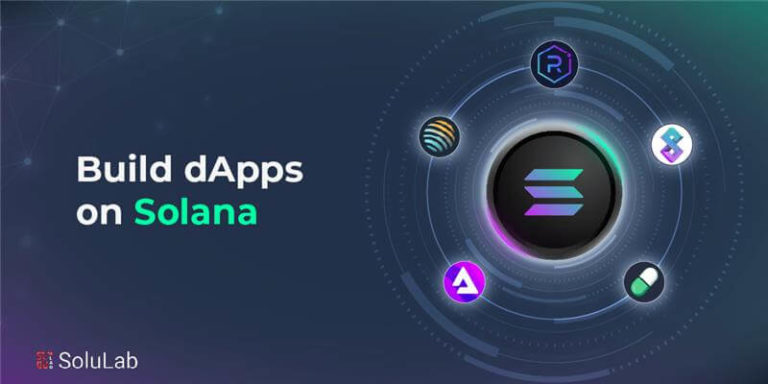HTML3 demand has risen dramatically in recent years. Various businesses, startups, and DAOs actively recruit Web3 developers. This has resulted in high demand. Candidates are also eager to learn more about the leading Web3 platforms for developing creative solutions. It is vital to note that Web3 is still in its early stages. It is difficult to find Web3 developer platforms. Why? The lack of information and research is one of the primary reasons Web3 is not being adopted more broadly. In the ever-evolving landscape of technology, the emergence of Web3 platforms has captured the attention of developers, businesses, and users alike. As we step into 2025, the significance of Web3 platforms cannot be overstated.
In this blog, we will delve into the world of Web3, exploring what these platforms are, why they matter, and the top Web3 platforms making waves this year. So, let’s get started!
What Exactly is a Web3 Platform?
A Web3 platform represents a paradigm shift in the way we interact with the digital world. Unlike the conventional Web2 platforms that concentrated control and data ownership in the hands of a few centralized entities, Web3 introduces a decentralized framework that empowers users and fosters greater transparency.
At its core, a Web3 development platform is built upon blockchain technology, which serves as the foundation for its decentralized architecture. Blockchain ensures that data and transactions are recorded on a distributed ledger, and shared among a network of participants, without the need for intermediaries. This not only enhances security but also establishes a trustless environment where participants can engage in peer-to-peer interactions without relying on a central authority.
Web3 solutions enable the creation of applications that are not only transparent and secure but also give users greater control over their data and digital identities. Users can own, manage, and share their data on their terms, a stark departure from the data monetization models of Web2 platforms. This user-centric approach, combined with the principles of decentralization, interoperability, and censorship resistance, forms the bedrock of Web3 platforms, ushering in a new era of internet architecture that promises to reshape how we navigate the digital realm.
Significance of Using Web3 Platforms
The significance of Web3 platforms in today’s digital landscape cannot be overstated. They represent a groundbreaking shift from the centralized models of Web2, offering a decentralized, user-centric alternative. At the heart of this transformation lies the concept of empowerment. Web3 platforms empower individuals by handing back control over their data and digital identities, addressing long-standing concerns about privacy and security.
In the pursuit of this decentralized vision, the role of Web3 development services, Web3 software, and Web3 development companies becomes paramount. These specialized entities form the backbone of the Web3 ecosystem, providing the expertise needed to build and maintain decentralized applications (DApps) and infrastructure. They help bridge the gap between traditional centralized systems and the new decentralized paradigm, enabling businesses and developers to navigate this transformative landscape.
Moreover, the significance of Web3 platforms goes beyond individual empowerment. They encourage collaboration and innovation on an unprecedented scale. By allowing developers to create DApps on open, permissionless protocols, Web3 platforms foster an environment where creativity flourishes. This democratization of technology fuels a global community of developers and entrepreneurs who collectively strive to redefine industries, from finance and gaming to art and social networking.
In this context, the emergence of Web3 services plays a pivotal role. These encompass a wide range of offerings, including web3 development services that focus on building decentralized applications, web3 software development tailored to the unique needs of the decentralized ecosystem, and web3 development companies that bring their expertise and experience to the table. As the adoption of Web3 platforms continues to grow, the demand for these services escalates, serving as catalysts for the successful realization of the decentralized vision and unlocking the full potential of the Web3 revolution.
Benefits of Web3 Platforms
Web3 platforms offer a multitude of benefits that extend far beyond the capabilities of their Web2 predecessors. These decentralized networks are revolutionizing the digital landscape. Embracing a Web3 network infrastructure comes with several key benefits that are reshaping the way we interact with technology and the Internet, such as:
- Data Ownership and Control: In Web3 technology, individuals regain control over their data. Unlike the centralized models of Web2, Web3 platforms allow users to own and manage their information, giving them greater autonomy over their digital identities.
- Enhanced Security: The use of blockchain technology in Web3 platforms brings robust security measures. Data on a decentralized ledger is encrypted and distributed across a network, making it more resistant to hacking and unauthorized access.
- Interoperability: Web3 platforms are designed with interoperability in mind. This means that applications and services built on these networks can seamlessly interact with each other, promoting a more connected and efficient digital ecosystem.
- Censorship Resistance: Centralized platforms have the power to censor content and applications. Web3 networks, on the other hand, are more resistant to censorship, as data and applications are distributed across a decentralized network of nodes.
- Transparency: Web3 networks encourage a sense of community among users and developers. This fosters innovation and the creation of applications that cater to diverse needs, from financial services to creative endeavors.
Top 10 Web3 Platforms to Try Out in 2025.

1. Alchemy
In the ever-evolving landscape of Web3 development, Alchemy stands out as a major blockchain developer platform that simplifies the process of building decentralized applications (DApps). Alchemy's mission is clear: to provide the essential infrastructure and services required for Web3 app development, freeing developers from the complexities of managing infrastructure so they can focus on building groundbreaking applications. One of Alchemy's flagship offerings is the Alchemy Supernode, renowned for its speed, reliability, and scalability. This Ethereum API serves as a reliable backbone for Web3 developers, ensuring that their applications run smoothly and efficiently. With the Supernode, developers can breathe easy, knowing that their infrastructure concerns are handled, allowing them to dedicate their time and expertise to crafting innovative solutions. What sets Alchemy apart is its versatility. While it is well-known for its support of Ethereum, it also extends its capabilities to other prominent blockchains like Optimism, Solana, and Arbitrum. This multi-chain compatibility makes it a valuable tool for developers seeking to explore various ecosystems and broaden the reach of their DApps.
Alchemy opens doors for a wide range of Web3 applications, from NFTs to DeFi protocols, cryptocurrency wallets, and Web3 gaming experiences. This versatility makes it a preferred choice for developers looking to diversify their Web3 projects. Among the prominent initiatives built on Alchemy are the 0x Protocol, a decentralized exchange aggregator, Element Finance, a DeFi platform, and OpenSea, one of the leading NFT marketplaces. These successful projects underscore Alchemy's impact on the Web3 ecosystem and its role in facilitating the creation of transformative applications.

2. ConsenSys
ConsenSys is a blockchain company that has been around for a long time and is considered to be one of the most influential companies that are pushing the Ethereum ecosystem. They provide a variety of resources, amenities, and infrastructure for people who are interested in developing Web3 applications and decentralized applications (dApps). The Ethereum-based distributed applications and blockchain networks are the areas of expertise that ConsenSys specializes in.
The development of reliable smart contracts, protocols for decentralized finance (DeFi), and tokenization solutions are some of the most important product offers that they provide. Additionally, they offer services that include scalability and interoperability for blockchain technology. The company ConsenSys is a pioneer in the development of Ethereum and offers high-performance tools like Infura, and MetaMask that ease the process of designing blockchain applications and interfacing with them. Due to their extensive knowledge of the Ethereum blockchain and Web3, they are the ideal partner for developing applications that are capable of decentralization and robustness.
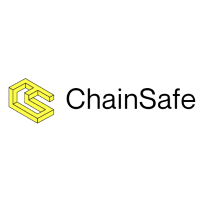
3. ChainSafe Systems
ChainSafe Systems is a blockchain development business that offers individualized decentralized solutions that are compatible with a variety of blockchain ecosystems. They are experts in developing decentralized (dApps) for Web3 that are both scalable and safe. ChainSafe Systems specializes in multi-chain growth, which means it can assist organizations in developing decentralized applications across a range of blockchains such as Polkadot, Solana, and Ethereum. In addition, they provide development and blockchain consulting services, which are aimed at the creation of systems that are both safe and scalable.
ChainSafe stands out from the competition due to its expertise in multi-chain solutions. Businesses can take advantage of every opportunity of decentralized technologies with their assistance, and ensure that apps are compatible with a variety of blockchain platforms. The fact that they have experience growing decentralized applications and interoperability across chains makes them a good candidate for Web3 projects that are very advanced.
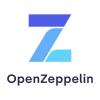
4. Open Zeppelin
The blockchain security firm known as OpenZeppelin is well known for the open-source frameworks and libraries that it provides. These frameworks and libraries are used for the construction of safe decentralized applications and intelligent contracts. It is one of the companies that specialize in the development of smart contracts, cryptocurrency, and dApps. Their most well-known product is their safe libraries which have been validated by the community. These libraries are available to developers so that they can prevent vulnerabilities in their apps. In addition to that, they offer auditing services for smart contracts.
OpenZeppelin’a products are built with security as their primary focus. There. Smart contract libraries are largely considered to be among the most secure and their group of professionals can assist in auditing and securing any Web three application. By selecting OpenZeppelin, you can be assured that your dApp will be constructed with the most advanced securities standards in the market.

5. Blockchain App Factory
The Blockchain app factory is a web development business that specializes in the creation of decentralized applications, platforms that are based on Blockchain technology, and other Blockchain-based solutions. The development of decentralized, finance, platforms, non-fungible, token marketplace, and the provision of Blockchain consulting services at the area of expertise of Blockchain app factory Limited. They are very skilled in the creation of tokens, the development of smart contracts, and the assistance regarding the listing and integration of tokens.
The Blockchain App Factory is a comprehensive solution for building web3 applications. They collaborate with companies to design decentralized apps that are scalable, safe, and customizable to meet specific needs. Projects who are interested in entering the decentralized finance area will benefit greatly from working with them as a partner because of their backgrounds in listing token services and decentralized finance.

6. HashCash Solutions
HashCash Consultants is a multinational box in consulting and development organization that specializes in the construction of cryptocurrency exchanges, networks, infrastructure, solutions, and decentralized exchanges for Blockchain technology. The development of exchanges that trade decentralized finance solutions, the development of tokens, and the integration of Blockchain services are the areas of expertise that HashCash specializes in. Businesses and governments that are interested in utilizing Blockchain technology can benefit from the solutions that they implement.
For a significant amount of time, HashCash has been providing Blockchain solutions that are suitable for enterprise use, particularly focusing on the areas of scalability and security. They are a reliable partner for the growth of web3 and Blockchain technologies, since they provide businesses with individual solutions that can assist them in making the transition to a decentralised society.

7. Moralis
Moralis is a game-changing player in the realm of Web3 technologies. It offers a comprehensive suite of tools and services tailored to empower developers in the creation of decentralized applications (DApps) and blockchain-based projects. With a user-centric focus, Moralis simplifies the complexities of Web3 development, enabling developers to harness the potential of blockchain technology effortlessly.
At the core of Moralis is a commitment to transparency, security, and scalability. It provides developers with essential resources to seamlessly interact with blockchain networks, abstracting away many of the intricacies that often hinder the development process. Moralis fosters a vibrant and collaborative community, where developers can exchange insights and knowledge, accelerating the pace of innovation within the Web3 ecosystem. In a rapidly evolving Web3 landscape, Moralis's dedication to simplifying Web3 development is poised to redefine how we approach blockchain-based applications. As the demand for user-friendly and efficient tools in the Web3 space continues to grow, Moralis remains a beacon of innovation.

8. Infura
Infura is a name synonymous with Web3 infrastructure, playing a pivotal role in the development and operation of decentralized applications (DApps) and services. It serves as a critical gateway between developers and blockchain networks, providing a reliable and scalable infrastructure layer. Infura's significance lies in its ability to abstract the complexities of running blockchain nodes, allowing developers to focus on creating and scaling their Web3 projects without the overhead of maintaining network infrastructure. The appeal of Infura is its accessibility. It offers developers seamless access to various blockchain networks, including Ethereum and IPFS, through simple and developer-friendly APIs. This accessibility lowers the barrier to entry, enabling a broader range of developers, from newcomers to seasoned experts, to participate in the Web3 ecosystem.
Infura has become an indispensable tool for Web3 development companies and individual developers alike. Its robust infrastructure ensures that DApps operate smoothly, making it a go-to choice for those seeking to harness the power of blockchain technology. As the Web3 landscape continues to expand, Infura's role as a reliable infrastructure provider remains paramount, facilitating the growth and adoption of Web3 applications across the digital realm.

9. deBridge
deBridge is a pivotal player in the world of Web3 technology, dedicated to providing seamless solutions for decentralized applications (DApps) and Web3 apps. Its significance lies in its unique role as a bridge between different blockchain networks, simplifying the process of cross-chain transactions and asset transfers. With deBridge, developers and users can experience the full potential of Web3 solutions without being limited by blockchain silos. At the heart of deBridge's appeal is its user-centric approach. It ensures that users have easy access to a wide array of blockchain networks, allowing them to navigate the Web3 technology effortlessly. This interoperability is a game-changer for developers seeking to build DApps that interact with multiple blockchains, as it opens up new possibilities for creating more versatile and feature-rich applications.
As the Web3 ecosystem continues to evolve, deBridge's role in facilitating cross-chain transactions and asset swaps becomes increasingly significant. Its commitment to interoperability ensures that users and developers can tap into the full spectrum of Web3 solutions.

10. Odyssey
Odyssey is a trailblazing platform in the realm of Web3, charting a course toward a more decentralized and connected digital future. It distinguishes itself by offering a suite of tools and services that empower developers, startups, and businesses to embark on their Web3 journeys with confidence. Odyssey's significance lies in its commitment to simplifying the complexities of blockchain and Web3 development, making it accessible to a broader audience. What sets Odyssey apart is its focus on fostering innovation through collaboration. It provides a collaborative ecosystem where developers and entrepreneurs can exchange ideas, share knowledge, and build the next generation of Web3 applications and solutions. This collaborative spirit accelerates the pace of Web3 technology adoption and fuels the creation of diverse and impactful projects.
In a rapidly evolving Web3 landscape, Odyssey's mission is to serve as a guiding star, helping navigate the uncharted waters of decentralized technology. As the demand for Web3 solutions and blockchain-based applications continues to grow, Odyssey remains at the forefront, empowering pioneers to set sail into the future of the decentralized digital realm.
Conclusion
In closing, the year 2025 marks a defining moment in the Web3 revolution, where the evolution of blockchain technology and decentralized principles converge to reshape the digital landscape. The top 10 Web3 platforms we’ve explored in this blog stand as beacons of innovation, offering a glimpse into the limitless possibilities of a more decentralized, user-centric internet. These platforms empower developers to create groundbreaking applications, users to regain control over their data, and businesses to explore novel opportunities in a more open and interconnected digital ecosystem.
SoluLab has established itself as a formidable ally within the realm of Web3, primed to elevate any venture into the decentralized future. Their unwavering commitment to delivering top Web3 development services guarantees that clients possess the essential tools and expertise required to confidently embark on their Web3 journey. Whether one envisions the creation of decentralized applications, explores seamless blockchain integration, or seeks to bolster their team by hiring Web3 developers from SoluLab, this organization stands as a trusted partner dedicated to crafting innovative and user-centric Web3 solutions.
Their experienced professionals are well-versed in the intricacies of blockchain technology, enabling them to provide tailored solutions that align with your unique objectives. With SoluLab by your side, you can navigate the rapidly evolving Web3 landscape with ease, leveraging the latest advancements to create powerful and secure decentralized applications. Contact SoluLab today and embrace the future of the digital world with them as your guide. Together, you’ll unlock the vast potential of Web3 technology to transform your vision into reality.

FAQs
1. What is Web3 technology, and how is it different from Web2?
Web3 represents a paradigm shift towards a more decentralized internet where data ownership and control are in the hands of users. Unlike Web2, which relies on centralized platforms, Web3 leverages blockchain technology to create trustless, user-centric applications and services.
2. Why are Web3 platforms significant in 2025?
Web3 platforms are significant because they address critical issues like data privacy, security, and censorship resistance. They empower users, foster innovation, and offer a more transparent and equitable digital environment.
3. What are the challenges faced while using Web3 platforms?
The complexity in understanding ads using Web3 platforms includes scalability issues, Reve concerns due to blockchain, transparency, and difficulty while setting up wallets and managing private keys. In addition to this, interoperability issues between blockchains make it hard for everyday users to fully adopt Web33.
4. What are some examples of Web3 applications?
Web3 applications, also known as DApps, cover a wide range of use cases. Some examples include DeFi platforms for lending and borrowing, non-fungible token (NFT) marketplaces for digital collectibles, blockchain-based identity verification systems, and social networks that give users control over their data.
5. How does SoluLab’s expertise benefit my Web3 project?
SoluLab brings a wealth of experience in Web3 development to the table. Our team of skilled developers and blockchain experts can help you design, develop, and launch your Web3 project efficiently and securely. Whether it’s building decentralized applications, integrating blockchain solutions, or providing guidance on Web3 best practices, SoluLab’s expertise ensures your project’s success in the rapidly evolving Web3 landscape.


